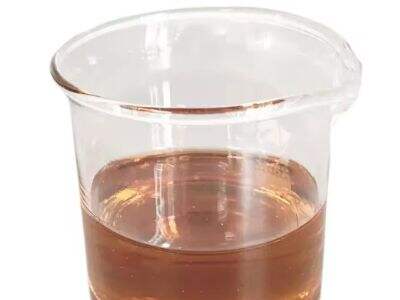Колко пъти сте видели масло и вода да се смесват в чаша? И ако сте, тогава най-вероятно без никакъв успех. Те просто се разделят на две слоя вместо да се сплавят в една, равномерна течност. Тук помага, защото маслото и водата обикновено нямат склонност да се смесват добре един с друг. За да ги комбинирате, ви трябва емулгатор. Емулгатори от OILREE ще помогнат да се смесват неща, които в противен случай биха се отказали лесно да се смесват.

Синтетичните повърхностно активни вещества често са избраните емулгатори в нашата moden свет. Този тип повърхностно активно вещество е синтетично и се използва доста често в много видове чистящи продукти, както и в артикули за лична грижа. Всичко пак тези синтетични съставки могат да бъдат строги към околната среда и може дори да раздразняват чувствителната кожа. Добрият вест е, че неионните емулгатори са на разположение за вас да ги използвате. Може да изберете тези природни форми на повърхностно активни вещества вместо синтетичните им форми. Мислех, че би могло да е полезно да се разгледат по-подробно неионните емулгатори и да разберем как те са по-добри за нас, както и.
Представете си малко мазнина, която е била разсейана с помощта на нещо сапун и ще получите пример за неионни емулгатори, които са приязни към околната среда.
Неионни емулгатори - тези могат да бъдат създадени от природни вещества, включително жели и масла. Природните емулгатори са екологично чисти, защото не шкодят на водните животни или растения. Неионните емулгатори, в противоположност на синтетичните повърхностно активни вещества, които могат да произвеждат опасни остатъци, контамиращи нашата въздух, вода и земя. Те са биоразлагаеми, така че след време се разлагат до безопасни, нетоксични елементи.
В много чистящи продукти използваме неионни емулгатори. Например, продукти като дивер, моющих средства и шампунове за тяло всички се ползват от тези природни емулгатори. Те помогат на тези продукти да чистят ефективно и също така гарантират безопасността на нашия планет. Ако не знаете, тези хранителни добавки се правят от соев лецитин, който е неионен емулгатор. Можем да помогнем да запазим света безопасен и екологично чист само с тази промяна, тъй като това може да доведе до по-малко замърсяване на нашите екосистеми, защото ще имаме по-малко животински продукти, които трябва да метаболизират.
B: Загрижване за чувствителната кожа Емулгатори (неионни)
Въпросът е, че повечето хора имат чувствителна кожа и я заплашват с всички продукти, които използват. Този вид кожа не реагира добре на синтетични повърхностни активни вещества, тъй като те обикновено са прекалено строги за този тип. Те са толкова раздразняващи, че могат да причинят неща като избухвания, червеното и сушаване на кожата. Емулсификатори влизат неионни емулгатори
За спасение. Те са много по-меки и няма да раздразнят вашата кожа. Неионните емулгатори могат да се намерят в много различни рецепти за грижа за кожата. Например, често се използват в кремове, лотioni и слънчеви кремове. Тези емулгатори гарантират, че вашата кожа остава увлажнява и не произвежда неблагоприятни реакции или странични ефекти. Те също така са идеален избор за хората с алергени и за тези, които реагират на други вещества, правейки ги безопасен вариант за различни недостойни.
Неионните емулгатори заместват шкодливо синтетични повърхностни активни вещества
Синтетични повърхностно-активни вещества в промишлени чистящи агенти, както и в продукти за лична грижа. Някои от тези продукти са силни чистители, които премахват маслени петна и бактерициди. С друга страна, те могат да раздразняват кожата и очите ви и са вредни за водната флора и фауна. Простите неионни емулгатори могат да предложат решение на този проблем и да заместят тези шкодливи синтетични повърхностно-активни вещества безопасно.
С използването на неионни емулгатори , можем да произвеждаме още повече, защото то е дезинфекциен или дори растворител. Природните емулгатори функционират така добре като синтетичните, но не имат същите шкодливи странични ефекти. И същевременно те имат по-малко навязващ и по-приятен миризма от повечето синтетични повърхностно-активни вещества, затова сме щастливи да ги използваме при спрейване и протиране навсякъде.
Много продукти използват неионни емулгатори
Наистина, неионните емулгатори се използват не само в продуктите за чистене и грижа за кожата, но намират приложение и в много други области. Например, тези съставки често се използват при производството на боядла и облицовки, хартиени клееве, както и хранителни продукти. Нieiонните емулгатори осигуряват стабилност на тези смеси и подобряват техния перформанс.
Видове неионни емулгатори в боядлата и облицовките. Те подобряват разпределението/ Хомогенността на пигментните частици в смесите. Причината за това е, че дават по-ярка цвят и не скърцат толкова. Неионните емулгатори или емулируващ восък се използват в хранителните продукти, за да се предотврати разделението на смесите и да се гарантира еднородна текстура и вкус.

